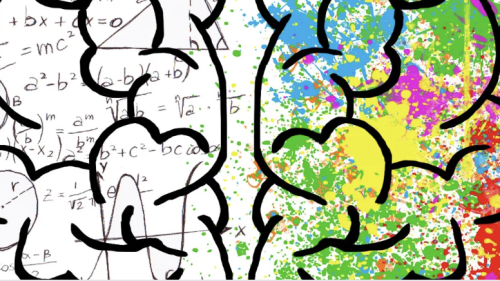In today’s rapidly evolving educational landscape, teachers are increasingly expected to make evidence-based decisions that support student success. Data is no longer just for policymakers and administrators—teachers, too, can harness its power to enhance their classroom practices and improve learning outcomes. The 100% online Master of Education (M.Ed.) in Research, Measurement, and Statistics at Kent State University equips educators with the research skills they need to effectively analyze classroom data, apply measurement techniques, and make informed instructional decisions that positively impact their students.
The Power of Data in the Classroom
Educators face many challenges, from addressing diverse learning needs to ensuring that instructional strategies align with curriculum standards and student goals. The ability to collect, analyze, and interpret data allows teachers to:
- Personalized Learning: Tailored instruction to meet the individual needs of students based on assessment results and performance trends.
- Evaluate Teaching Effectiveness: Use research-based techniques to assess which instructional strategies work best for their students.
- Improve Student Outcomes: Make informed adjustments to curriculum and teaching methods to boost student achievement.
- Identify Learning Gaps: Detect areas where students struggle and implement targeted interventions.
- Foster Equity: Use data to ensure all students have equal opportunities to succeed regardless of background.
How the M.Ed. in Research, Measurement, and Statistics Empowers Teachers
Kent State’s online M.Ed. program provides teachers with practical research, measurement, and data analysis skills that directly apply to their everyday classroom experience. The curriculum focuses on empowering educators to confidently engage with data-driven decision-making through:
1. Research-Based Decision-Making
Teachers learn how to design and conduct classroom-based research to evaluate their instructional practices. By understanding research methodologies, educators can critically analyze existing studies and apply findings to enhance their teaching.
2. Assessment and Measurement Techniques
The program equips educators with skills to develop valid and reliable assessments that accurately measure student learning. Teachers can analyze test results to identify trends, diagnose learning difficulties, and refine instructional methods.
3. Data Interpretation and Application
With statistical analysis and data visualization training, teachers learn how to translate raw data into actionable insights. This allows them to communicate findings effectively with students, parents, and administrators.
4. Program Evaluation and Improvement
Beyond the classroom, educators gain the skills to assess broader educational programs and initiatives, ensuring resources are effectively allocated to maximize student success.
5. Ethical Use of Data
The program emphasizes ethical considerations in educational research, helping teachers ensure that data is used responsibly and in ways that benefit students.
Practical Applications in the Classroom
Graduates of Kent State’s M.Ed. in Research, Measurement, and Statistics are equipped to implement data-driven practices that bring tangible benefits to their classrooms. Some real-world applications include:
- Formative Assessments: Using data to guide daily instruction and provide timely feedback to students.
- Student Progress Monitoring: Tracking individual student growth over time to inform instructional strategies.
- Professional Development: Sharing research findings with colleagues to promote a culture of continuous improvement.
- Classroom Action Research: Investigating the effectiveness of new teaching strategies to optimize student engagement and achievement.
Why Choose Kent State’s Online M.Ed. Program?
Kent State University’s online format offers working educators the flexibility to balance their professional responsibilities while advancing their skills. The program’s expert faculty, comprehensive curriculum, and focus on practical application ensure that graduates are well-prepared to make a meaningful impact in their schools.
Transform Your Teaching with Data-Driven Insights
Are you ready to take your teaching to the next level by leveraging the power of data? The Master of Education in Research, Measurement, and Statistics at Kent State University provides the tools and knowledge needed to enhance your classroom practices and improve student learning outcomes.
By empowering teachers with research and measurement skills, this program helps educators create learning environments where every student can thrive. Take the next step toward becoming a data-savvy educator who makes informed, impactful decisions in the classroom.





